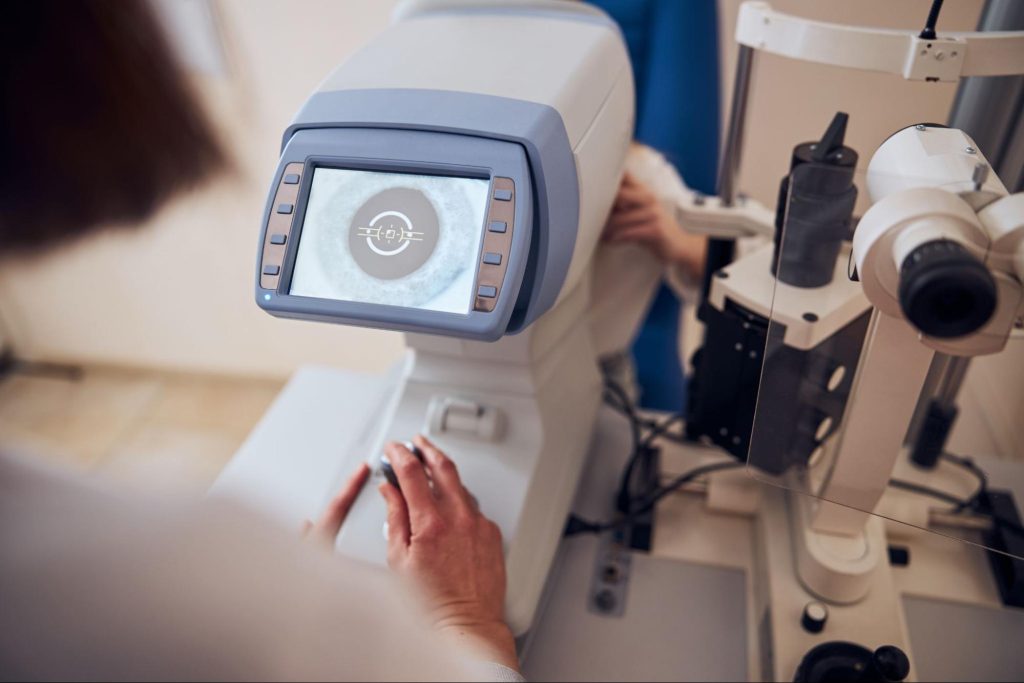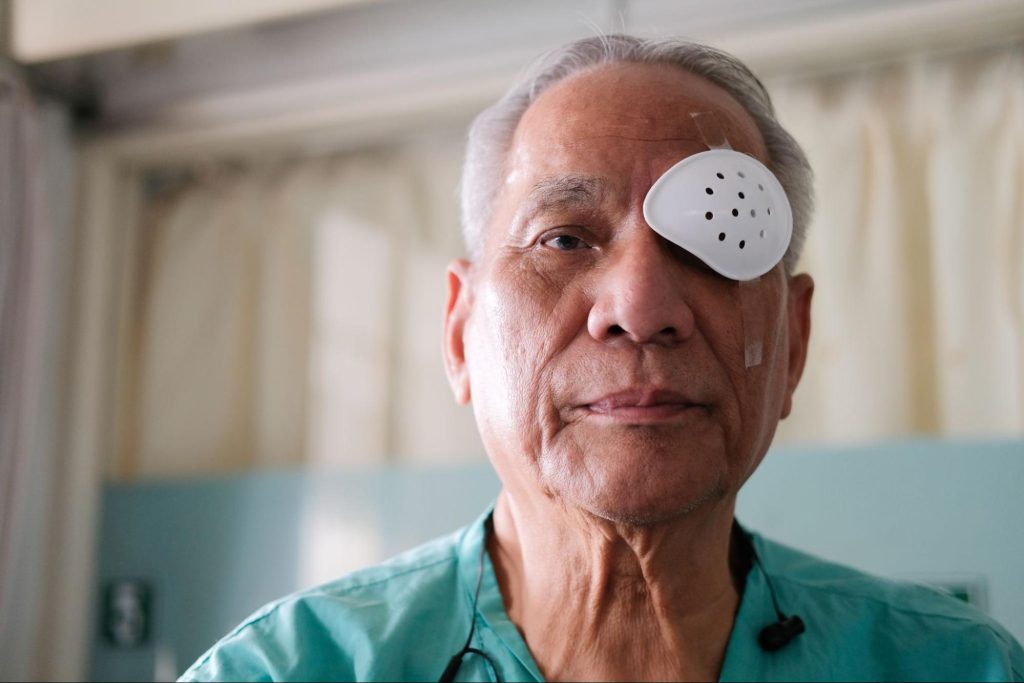Cataract is an eye condition which clouds the eye’s natural lens, leading to blurred vision and, in severe cases, blindness. For many, cataract surgery becomes necessary to restore clear vision, especially if it affects your capability to function in everyday life. Surgery may also be required if the cataract makes it hard for your eye doctor to treat your other eye condition if you have any.
This procedure involves removing and replacing the eye’s lens with an artificial lens. As it is performed outpatient, you don’t have to go to the hospital after the surgery. Instead, you have to take measures to ensure optimal recovery with the help of your eye specialist. In most cases, waiting to undergo cataract surgery won’t harm your eye, so you have time to consider your options. However, when the condition affects your quality of life, and you need to see a cataract specialist, it’s essential to research the treatment, recovery process, and effects.
Understanding the Cataract Surgery Recovery Process
Undergoing cataract surgery is a significant decision, and understanding the recovery process is pivotal for patients. Our eye specialists at EyeWise Vision have gathered years of experience working with cataract patients and aim to address common concerns and provide clarity on what to expect post-surgery.
How long is the recovery process from cataract surgery?
Cataract surgery has significantly improved over the years, leading to quicker recovery times and enhanced patient outcomes. You may experience grittiness, watering, blurred vision, double vision, or bloodshot eyes following the operation, but these side effects typically improve within a few days. Typically, recovery time may take you 2 to 4 weeks; however, this also depends on your meticulous adherence to surgery aftercare guidelines. It’s not just about vision clarity; it’s about ensuring the eye heals internally without complications. As such, regular check-ups, avoiding strenuous activities, and following prescribed medication routines are crucial during this period to promote optimal recovery.
What are the necessary cataract surgery aftercare practices that need to be observed?
You must use your post-op eye drops as prescribed by your eye specialist. Make sure to follow their instructions to help boost your recovery.
Moreover, it’s important to take extra care of your operated eye in the first week by preventing it from getting wet, particularly during showering, to prevent infection. Your eyes should be closed during the entire time that water is hitting the hair and face. Also, you are advised to position your head down in the direction of the floor to prevent water from running into your eyes. After you’ve finished showering, use a dry towel to lightly dry your face. Please know where the towel is, so you can reach for it without having to open your eyes. Make sure to lightly pat dry the face, and once your face is all dry, open your eyes.
How long do I need to wear an eye shield at night after cataract surgery?
The primary function of an eye shield post-surgery is to avert unintentional disturbances to the eye, especially during sleep. Night-time is when inadvertent rubbing or pressure due to certain sleeping positions can occur, posing risks to the recovering eye. You may be advised to wear eye shields consistently during sleep for at least the initial week post-cataract surgery to minimise these risks and optimise healing.
How long do I need to wear dark glasses outside after cataract surgery?
Following cataract surgery, your eyes may experience heightened sensitivity, especially to glaring lights or environmental irritants. Dark glasses serve as a protective and comforting tool against these sensitivities. When outdoors, especially during bright days, wearing these glasses for at least a week post-surgery is crucial.
How long after cataract surgery can you bend over?
Bending over, especially soon after cataract surgery, can inadvertently increase intraocular pressure, presenting risks to the freshly operated eye. As a preventive measure against potential complications, your eye specialist will recommend restricting activities that involve bending for at least two weeks post-surgery. It’s beneficial for you to consult with their ophthalmologist, who can provide specific guidelines based on the surgery’s details and the patient’s health.
How long after cataract surgery can you exercise?
Exercise and physical activities are essential for overall well-being. However, after a cataract surgery, you must tread cautiously to avoid any potential complications. While light activities such as walking might be permissible after a week, high-intensity exercises, especially those involving potential eye contact or straining, should be avoided for a more extended period. As with any post-operative aftercare guidelines, the specifics can vary, and consulting with an eye care professional will ensure the patient maintains a balance between staying active and ensuring eye safety.
Can you fly after cataract surgery?
While the rapid altitude changes in air travel can affect the body, it doesn’t generally pose a significant threat to a post-surgery eye. The cabin pressure changes during a flight are typically well-tolerated. However, every surgical case is unique, and individual factors may dictate a more cautious approach. Before embarking on any air travel post-surgery, consult with your eye care specialist to ensure it’s safe.

Get the Right Treatment for Your Cataracts with the Help of EyeWise Vision
Choosing to undergo cataract surgery is a significant decision, and EyeWise Vision is determined to make the experience as uncomplicated and reassuring as possible. With every step of the cataract surgery journey, from pre-surgery consultations to post-operative aftercare, we stand beside our patients, ensuring they are equipped with the right care, guidance, and support.
At EyeWise Vision, your health and comfort stand paramount, particularly after undergoing critical procedures such as cataract surgery. Recognising the importance of a seamless post-surgery recovery, we offer tailored care to meet your specific needs. Our unwavering commitment to patient well-being ensures that every individual who undergoes surgery experiences a smooth and worry-free recovery.
In some cases, your vision may become hazy after the cataract surgery when the eye tries to create a new lens and is not successful. With this, you may have to undergo YAG laser capsulotomy to clear up the cloudy posterior capsules. Learn more about the YAG Laser Capsulotomy procedure after the cataract surgery.

Dr. Christopher Khng, specializes in Complex Cataract and Anterior Segment Reconstruction Surgery, in particular, Iris Reconstruction and surgery for Aniridia. His other areas of expertise include Complex Lens surgery, New Lens and Phacoemulsification technologies, Refractive surgery, Phakic IOLs (the Implantable Collamer Lens, ICL), and small-incision, topical anesthesia phacoemulsification cataract surgery. Dr. Khng is a member of the Singapore Medical Association (SMA), a Fellow of the American Academy of Ophthalmology, the American Society of Cataract and Refractive Surgery (ASCRS), and the European Society of Cataract and Refractive Surgery (ECSRS). He is registered with the Singapore Medical Council (SMC) in Singapore and with the General Medical Council (GMC) for practice in the United Kingdom.

